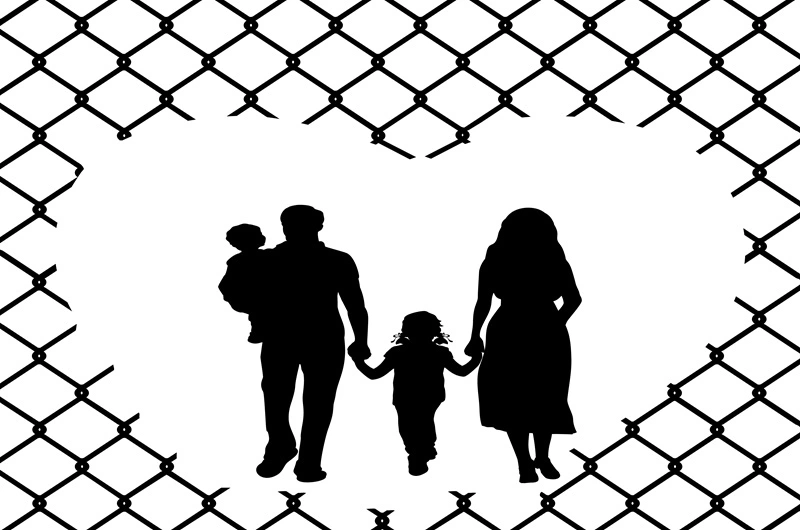How VAWA Leads Victims Of Abuse To Permanent Residency
Key Points:
VAWA (Violence Against Women Act) lets certain abused spouses, children, and parents of U.S. citizens or green card holders apply for permanent residency without the abuser’s knowledge. To qualify, you must show good moral character, prove the relationship, and document the abuse, physical or emotional. A successful VAWA petition can lead to work permits and a green card, even for those with prior immigration issues. VAWA is open to men and women alike and includes powerful confidentiality protections. Consulting an immigration lawyer can help you navigate this process safely.
Immigration status should never be a tool of control. Yet, for many abuse survivors, fear of deportation keeps them trapped in harmful relationships. VAWA offers a different path forward.
This powerful law opens a door for victims to claim safety, stability, and eventually, permanent residency, without relying on the abuser. It’s a legal remedy built on compassion and courage.

VAWA, A Powerful Immigration Lifeline
Some think that the Violence Against Women Act (VAWA) is a law that only benefits women. However, in immigration, VAWA is a lifeline for any immigrant, regardless of gender.
A Humanitarian Relief
VAWA provides humanitarian relief for survivors trapped in an abusive relationship with a U.S. citizen or lawful permanent resident. They can self-petition for a green card without involving their abuser.
How This Guide Helps
If you or someone you know is in an abusive situation and worried about losing immigration status, this guide walks you through. It explains how VAWA works, who qualifies, and what steps lead to permanent residency.
Who Can Qualify For VAWA Immigration Benefits?
VAWA immigration benefits are available to certain abused spouses, children, or parents of U.S. citizens or permanent residents. It offers a confidential path to safety and legal status without the abuser’s participation.
Three Groups Who Can Benefit
VAWA provides an option for three main groups of immigrants. Spouses of U.S. citizens or green card holders who have suffered abuse or extreme cruelty.
Children (unmarried and under 21) of abusive U.S. citizens or green card holders. Lastly, parents of U.S. citizens who have been abusive (the citizen must be at least 21 years old).
What If You Get A Divorce
You can still qualify even if you’re divorced. This should be as long as the divorce happened within two years of filing and the abuse occurred during the marriage.
Furthermore, you don’t need to live with the abuser currently, but you must show that you did at some point.
Types Of Abuse That Qualify
You do not need a police report or visible injuries to qualify for VAWA, as eligibility is based on credible evidence showing the abuse occurred and affected your well-being.
Abusive Situations
The law recognizes many types of abuse, including emotional or verbal threats and controlling behavior (like taking away your documents or forbidding you from working).
Financial manipulation in VAWA cases occurs when the abuser controls or withholds money, limits access to accounts, or uses economic dependency to restrict the victim’s independence.
Threats of deportation involve the abuser using the victim’s immigration status to intimidate or control them, such as saying they’ll report the victim to immigration authorities.
The Legal Standard
The legal standard is “battery or extreme cruelty.” That includes patterns of intimidation, isolation, and coercion. Evidence can consist of texts, emails, witness statements, medical records, or a personal declaration.
Key Eligibility Requirements
To apply under VAWA, you must meet the following eligibility requirements:
- Qualifying Relationship: Prove your relationship to the abuser (spouse, parent, or child).
- Good Moral Character: Typically means no serious criminal history.
- Evidence of Abuse: Any credible evidence is accepted. You do not need to prove your case “beyond a reasonable doubt.”
- Shared Residence: Show that you lived with the abuser at some point.
- U.S. Residence: The abuse must have occurred in the U.S. or the abuser must be an employee of the U.S. government or military.
Even if you entered the U.S. without inspection (without a visa), you may still qualify for VAWA benefits.
The Power Of Filing Without The Abuser’s Knowledge
One of the most powerful features of VAWA is its confidential filing process. Once you submit your VAWA petition (Form I-360), U.S. Citizenship & Immigration Services (USCIS) cannot contact your abuser. It keeps you safe and allows you to regain control over your immigration journey.
You do not need the abuser’s signature or consent to file. Many survivors worry their partner will sabotage their green card process or report them to immigration. With VAWA, you take that power back.
Step-By-Step Path To Permanent Residency
Here’s how the VAWA process typically unfolds:
1: File Form I-360. Submit your VAWA self-petition with supporting documents that prove the relationship, abuse, and your good moral character.
2: Receive Prima Facie Determination. If your evidence is initially strong, USCIS may issue a “prima facie determination” in 1–3 months. This letter can help you apply for certain public benefits.
3: Apply for a Work Permit. If eligible, you can apply for a work permit while your VAWA case is pending.
4: Adjustment of Status (Green Card). Once your I-360 is approved, and a visa is available, you may file Form I-485 to adjust your status to permanent resident. In some instances, you can file this at the same time as your I-360.
5: Biometrics & Interview. Attend a fingerprinting appointment and, if required, a green card interview.
6: Green Card Approval. If everything is in order, you’ll receive a green card and become a lawful permanent resident.
What If You’re Still Living With Your Abuser?
Many survivors think they can’t apply for VAWA unless they’ve already left the abusive home. That’s not true. You can begin the VAWA process while still living with the abuser, as long as you take steps to protect yourself and document your experience. The law does not require you to separate or divorce before applying.
Safety planning is key. Confidentiality rules ensure that your abuser will not be notified about your petition. We often help clients file quietly, then work with local shelters or family law attorneys to secure a safe exit plan. You have legal rights, even while you’re still in the relationship.
If you’re scared to act, that’s completely understandable. But delaying action can affect your legal options. Start with a conversation. We’ll walk you through your options, your risks, and your power. You deserve to be safe, supported, and informed.
Common Mistakes To Avoid
VAWA applications are powerful, but you must handle them carefully. One pitfall to watch for is not submitting enough evidence of the abuse or shared residence.
Be aware of inconsistent or vague personal statements. Also, filing after a divorce without showing that the abuse occurred during the marriage can create issues in your application.
Ignoring deadlines or failing to respond to USCIS requests can permanently jeopardize your application. An experienced immigration lawyer can help avoid these issues and strengthen your case.
What Happens If Your VAWA Petition Is Denied?
A denial doesn’t always mean the end. If USCIS denies your I-360, you might file a motion to reopen or reconsider the case. Then, you can submit an appeal to the Administrative Appeals Office.
Further, you can reapply with stronger evidence. Lastly, request prosecutorial discretion or other forms of humanitarian relief.
In some cases, a denial can trigger removal (deportation) proceedings. This is another reason to work closely with an immigration lawyer from the start.
VAWA Vs. U Visa, Which Is Right For You?
Both VAWA and U Visas offer protection to abuse or crime victims, but there are key differences:
| Feature | VAWA | U Visa |
| Abuser’s Status | Must be a U.S. citizen or a green card holder. | Can be of any immigration status. |
| Police Report Required? | No. | Yes. |
| Law Enforcement Help? | No requirement to work with law enforcement. | Must cooperate with law enforcement. |
| Goal | Humanitarian protection from domestic abuse. | Public safety and protection for victims of certain crimes. |
If your abuser is undocumented or the abuse occurred outside a family relationship, the U Visa might be a better option.
VAWA Is One Of The Most Forgiving Paths To A Green Card
Unlike many immigration processes, VAWA allows some flexibility:
- You may apply even if you entered the U.S. without a visa.
- Certain immigration violations may be waived.
- VAWA applicants are often exempt from “public charge” rules.
- You can still be eligible even after unlawful presence in the U.S.
These allowances reflect the humanitarian spirit of VAWA, keeping people safe should not depend on perfect paperwork or ideal circumstances.
How VAWA Transforms Lives
The immigration consequences of abuse can be paralyzing. Many survivors stay in harmful relationships out of fear of losing their legal status or being separated from their children. VAWA turns that fear into a pathway to safety, work, and a stable future.
Every VAWA approval means a person is no longer trapped. They can work legally, access healthcare, live free from fear, and, eventually, apply for U.S. citizenship.
Your Safety & Dignity Come First
VAWA is more than a petition; it’s a declaration of independence. It says you are not bound to someone who harms you just because they have immigration power over you. If you meet the criteria, you have the right to pursue status on your terms, safely and confidentially.
And remember, this process is open to anyone, men, women, LGBTQ+ individuals, who have suffered abuse at the hands of a qualifying relative. You don’t have to suffer in silence or give up your dreams of staying in the U.S.
If you or someone you care about is in an abusive relationship and concerned about immigration status, we’re here to help. Lincoln-Goldfinch Law in Austin, Texas, believes in dignity, safety, and justice. Let’s explore your options and protect your future.
Contact A U.S. Immigration Attorney Today!
Categories
How To Find Us
What Our Clients Say
“This Lawfirm is great, very professional and helpful. I love that they are always in communication and always available for when you have questions . 100% recommended by me and my family. Thank you Lincoln-Goldfinch Law – Abogados de Inmigración”




